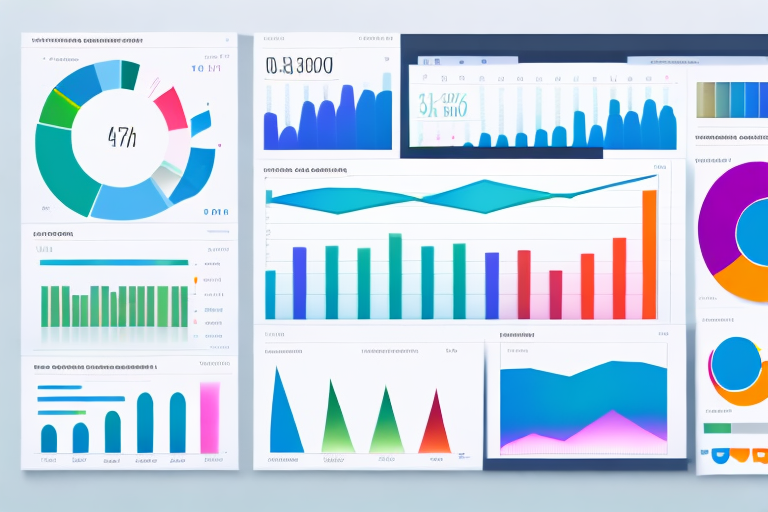How to Effectively Manage Affiliate Programs
Affiliate marketing is a powerful strategy to grow your business online by leveraging partnerships with individuals or organizations that promote your products or services. However, setting up and managing an affiliate program can be time-consuming and complex, especially for those new to the field. This guide provides a comprehensive overview of managing affiliate programs, covering everything from understanding the basics to implementing best practices and overcoming common challenges.
The Importance and Benefits of Affiliate Programs
Affiliate programs play a crucial role in expanding your business's reach and increasing revenue without significant upfront marketing investments. By partnering with affiliates, you pay commissions for each sale they generate through their unique tracking links, incentivizing them to promote your offerings actively. According to a Statista report, affiliate marketing spending is projected to reach $8.2 billion by 2022, highlighting its growing significance in the digital marketing landscape.
In addition to driving sales, affiliate programs enhance brand awareness and credibility. When reputable affiliates endorse your products or services, they act as trusted sources recommending your brand to their audience. This endorsement helps establish trust with potential customers who may be unfamiliar with your business, thereby increasing visibility and recognition within your industry.
Types of Affiliate Programs
Pay-Per-Sale (PPS)
In a pay-per-sale model, affiliates earn a commission for every sale generated through their referral links. This model directly ties affiliate compensation to sales performance, ensuring that affiliates are motivated to drive conversions.
Pay-Per-Click (PPC)
The pay-per-click model compensates affiliates based on the number of clicks their referral links receive, regardless of whether those clicks result in sales. This approach is beneficial for driving traffic to your website.
Pay-Per-Lead (PPL)
Under the pay-per-lead model, affiliates are paid for generating leads, such as newsletter sign-ups or account registrations. This model focuses on expanding your customer base by gathering potential customer information.
Two-Tier Programs
Two-tier programs allow affiliates to earn commissions not only from their direct sales but also from the sales made by affiliates they refer to the program. This structure encourages affiliates to recruit others, expanding your affiliate network.
Recurring Commissions
Recurring commission models provide affiliates with ongoing payments for each subscription or repeat purchase made by customers they referred. This model fosters long-term partnerships and provides affiliates with a steady income stream.
Best Practices for Setting Up and Managing Your Affiliate Program
Define Clear Goals and Objectives
Start by outlining your affiliate program's goals, whether it's increasing sales, expanding brand awareness, or entering new markets. Clearly defined objectives help in structuring the program effectively.
Choose the Right Affiliate Management Software
Selecting reliable affiliate management software is essential for accurate tracking, reporting, and communication with affiliates. Tools like Refersion and Post Affiliate Pro offer comprehensive solutions for managing affiliate programs efficiently.
Create Comprehensive Program Guidelines
Develop clear and concise guidelines outlining commission structures, promotional methods, and compliance requirements. Providing detailed policies ensures that affiliates understand their roles and responsibilities.
Monitor and Optimize Program Performance
Regularly review your program's performance metrics to identify strengths and areas for improvement. Utilize data-driven insights to make informed decisions that enhance program effectiveness.
Offer Incentives and Bonuses
Motivate your top-performing affiliates by offering additional incentives such as bonuses, exclusive promotions, or higher commission rates. Recognizing and rewarding excellence fosters loyalty and encourages sustained performance.
Selecting, Engaging, and Retaining the Right Affiliates
Identify Potential Affiliates
Look for affiliates who align with your brand's values and have a relevant audience. Influencers, bloggers, and content creators within your industry are excellent candidates. Platforms like Influencer Marketing Hub can help you identify suitable partners.
Assess Affiliate Quality
Evaluate potential affiliates based on their content quality, audience engagement, and track record of sales and conversions. High-quality affiliates are more likely to drive meaningful traffic and sales.
Establish Clear Expectations
Communicate your program's expectations clearly, including commission rates, performance goals, and promotional guidelines. Transparent communication helps affiliates understand what is required to succeed.
Provide Support and Resources
Equip your affiliates with the necessary tools and resources, such as marketing materials, product information, and training. Offering support enhances affiliates' ability to effectively promote your products or services.
Foster Long-Term Relationships
Maintain regular communication, provide constructive feedback, and show appreciation for your affiliates' efforts. Building strong relationships encourages affiliates to remain committed to your program.
Marketing Materials and Tracking Performance
Develop High-Quality Marketing Materials
Provide affiliates with clear and compelling product descriptions, high-resolution images, videos, and persuasive calls to action. A well-equipped affiliate can create more effective promotional content.
Maintain an Affiliate Portal
Create a centralized portal where affiliates can access marketing materials, track their performance, and manage their accounts. An efficient portal streamlines the affiliate management process.
Implement Robust Tracking Systems
Use advanced tracking systems to monitor key performance indicators (KPIs) such as conversion rates, click-through rates, sales, and return on investment (ROI). Accurate tracking ensures that affiliate performance is measured effectively.
Analyze Performance Data
Regularly analyze performance data to identify trends, evaluate affiliate effectiveness, and make data-driven decisions. Insights from data analysis can inform strategies for optimizing program performance.
Optimize Based on Insights
Use the insights gained from performance tracking to refine your affiliate program. This could involve adjusting commission rates, targeting different affiliate segments, or enhancing marketing materials.
Overcoming Challenges and Scaling Your Affiliate Program
Mitigating Fraud and Compliance Issues
Implement strict guidelines and perform regular compliance checks to prevent fraudulent activities and ensure that affiliates adhere to program policies.
Adapting to Industry Changes
Stay informed about the latest trends and changes in affiliate marketing. Attend industry events, network with other affiliate managers, and keep up-to-date with industry publications to stay ahead.
Managing a Growing Network
As your affiliate program expands, utilize affiliate management software to automate tasks such as tracking commissions, processing payments, and communicating with affiliates, thereby reducing the risk of errors and saving time.
Expanding Your Affiliate Network
Reach out to new affiliates, including influencers and industry experts, to broaden your network. Offering incentives for current affiliates to refer new partners can also help grow your program.
Diversifying Promotional Channels
Utilize various promotional channels such as social media, email marketing, and paid advertising to enhance your affiliate program's reach and effectiveness.
Preparing for Future Trends
Embrace emerging technologies like artificial intelligence and machine learning to innovate your affiliate marketing strategies. Staying ahead of trends ensures your program remains competitive and effective.
Legal Considerations in Affiliate Marketing
Compliance with Regulatory Guidelines
Ensure your affiliate program complies with legal standards such as the Federal Trade Commission (FTC) guidelines. Affiliates must disclose their relationship with your business transparently.
Protecting Intellectual Property
Safeguard your brand and intellectual property by establishing clear usage policies for your affiliates. This includes guidelines on logo usage, content creation, and promotional strategies.
Contractual Agreements
Provide affiliates with formal agreements outlining the terms and conditions of the partnership. Clear contracts help prevent misunderstandings and protect both parties legally.
Data Privacy and Security
Ensure that your affiliate program adheres to data privacy laws such as the General Data Protection Regulation (GDPR) and the California Consumer Privacy Act (CCPA). Protecting customer data is paramount for maintaining trust and compliance.
Consult Legal Experts
When in doubt, consult with legal professionals to navigate the complexities of affiliate marketing laws and regulations. Expert guidance can help avoid legal pitfalls and ensure your program operates within legal boundaries.
The Future of Affiliate Marketing: Trends and Predictions
Rise of Influencer Marketing
The integration of influencer marketing with affiliate programs is becoming increasingly prominent. Influencers bring substantial reach and credibility, enhancing the effectiveness of affiliate campaigns.
Mobile Optimization
With the continual growth of mobile usage, optimizing your affiliate program for mobile devices is essential. This includes ensuring that affiliate links and promotional materials are mobile-friendly.
Artificial Intelligence and Machine Learning
AI and machine learning technologies are revolutionizing affiliate marketing by enabling more sophisticated tracking, personalization, and automation. These technologies enhance the efficiency and effectiveness of affiliate programs.
Video Content Integration
Video content is gaining traction as a powerful promotional tool. Integrating video marketing into your affiliate program can boost engagement and conversion rates.
Enhanced Data Analytics
Advanced data analytics tools provide deeper insights into affiliate performance and customer behavior. Leveraging these tools allows for more informed decision-making and program optimization.
Expanding Global Reach
Globalization is expanding the potential reach of affiliate programs. By targeting international markets, businesses can tap into new customer bases and increase their revenue streams.
Measuring the ROI of Your Affiliate Program
Calculate Total Revenue Generated
Assess the total revenue generated from affiliate-driven sales to determine the financial impact of your affiliate program. This includes direct sales as well as any indirect revenue influenced by affiliate activities.
Analyze Cost of Commissions
Evaluate the total cost of commissions paid to affiliates to understand the investment required for your affiliate program. Comparing this cost to the revenue generated helps in assessing profitability.
Evaluate Program Efficiency
Assess the efficiency of your affiliate program by comparing the revenue generated to the costs incurred. Analyzing key metrics like conversion rates and average order value (AOV) provides insights into program performance.
Utilize ROI Metrics
Use metrics like Return on Investment (ROI) to gauge the effectiveness of your affiliate program. ROI calculations help determine whether the program meets your financial and business objectives.
Adjust and Optimize Based on ROI
Use the insights gained from ROI analysis to refine your affiliate strategies. This may involve reallocating resources, adjusting commission structures, or enhancing promotional efforts to improve program performance.
Leverage Analytics Tools
Employ robust analytics tools such as Google Analytics and Hootsuite Insights to monitor and measure the ROI of your affiliate program effectively.
In conclusion, managing affiliate programs requires a strategic approach encompassing the establishment of clear frameworks, selection of high-quality affiliates, provision of effective marketing materials, and ongoing performance evaluation. By implementing best practices and staying abreast of industry trends, businesses can create successful and sustainable affiliate programs that drive significant revenue growth.




















